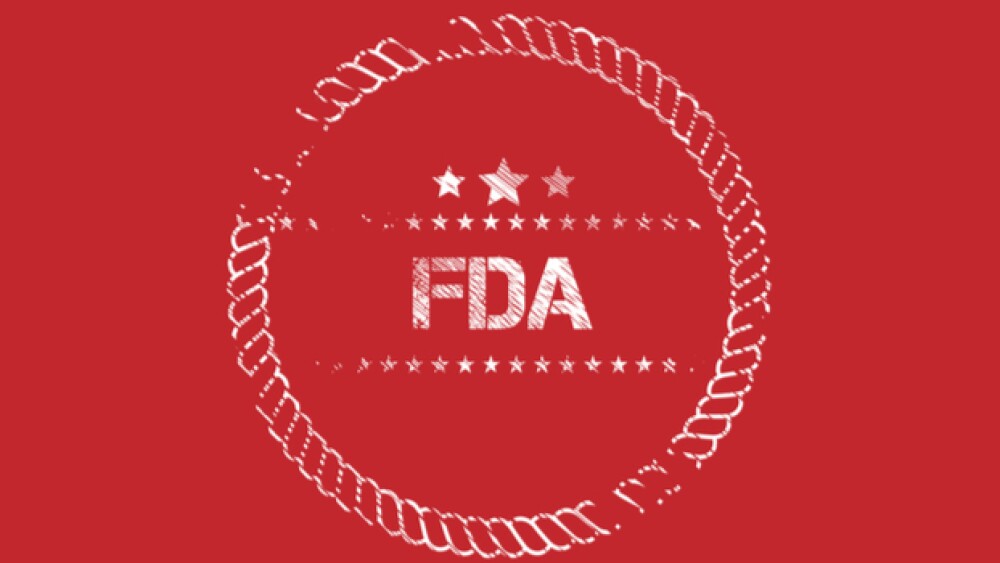Although March looks to be a busy month for the U.S. Food and Drug Administration, several of the PDUFA dates for this week were for drugs under Priority Review.
Although March looks to be a busy month for the U.S. Food and Drug Administration (FDA), several of the PDUFA dates for this week were for drugs under Priority Review. And is often the case, the agency got to several of these drugs ahead of their target action dates. Here’s a look.
Horizon Therapeutics’ Teprotumumab for Thyroid Eye Disease
Horizon Therapeutics, based in Dublin, had a target action date of March 8, 2020, for its Biologics License Application (BLA) for teprotumumab for active thyroid eye disease (TED). It was under Priority Review. The FDA approved the drug under the brand name Tepezza on January 21, 2020.
The application was based on data from the Phase III OPTIC confirmatory clinical trial as well as positive Phase II results. The OPTIC trial found that more patients receiving teprotumumab had a meaningful improvement in bulging of the eye (proptosis) compared to placebo. All secondary endpoints were also hit, including reduced double vision, improved quality of life and reductions in Clinical Activity Score (CAS).
Bristol Myers Squibb’s Opdivo and Yervoy for Hepatocellular Carcinoma
Bristol Myers Squibb has a target action date of March 10 for its Priority Review of its supplemental BLA for Opdivo (nivolumab) in combination with Yervoy (ipilimumab) for advanced hepatocellular carcinoma (HCC) previously treated with sorafenib. The sBLA was based on results from the Phase I/II CheckMate -040 trial. Data was presented at the 2019 American Society of Clinical Oncology (ASCO) Annual Meeting.
Merck and NewLink Genetics’ Ebola Vaccine Ervebo
Merck and NewLink Genetics had a BLA under Priority Review for its investigational Ebola vaccine (V920) with a target action date of March 14. In September 2019, the FDA approved the BLA for Ervebo on December 20, 2019.
“Approval of this vaccine by the FDA represents another important milestone in the global response to Ebola Virus Disease and stands as a tremendous accomplishment by a unique global partnership,” said Roger M. Perlmutter, president of Merck Research Laboratories, at the time. “In acknowledging this event, I wish in particular to recognize the heroic efforts being made by frontline responders to the ongoing outbreak in the Democratic Republic of Congo. We are proud and honored to play a role in supporting their vital activities, and we remain focused on the important work ahead.”
Seattle Genetics and Astellas’ Padcev for Urothelial Cancer
Seattle Genetics and Astellas Pharma had a target action date of March 15 for the BLA for enfortumab vedotin under Priority Review for patients with locally advanced or metastatic urothelial cancer who have received a PD-1/L1 checkpoint inhibitor and who have received a platinum-containing chemotherapy in the neoadjuvant/adjuvant, locally advanced or metastatic setting. The FDA approved the drug as Padcev for this indication on December 18, 2019.
The drug was approved under the FDA’s Accelerated Approval Program based on tumor response rate. The approval is contingent on verification and description of clinical benefit in confirmatory trials. The drug is the first FDA-approved therapy in the U.S. for this indication.
Padcev is a first-in-class antibody-drug conjugate (ADC) directed against Nectin-4, a protein found on the surface cells that is highly expressed in bladder cancer.
“Metastatic urothelial cancer is an aggressive and devastating disease with limited treatment options, and the approval of Padcev is a significant advance for these patients who previously had limited options after initial therapies failed,” said Jonathan E. Rosenberg, Medical Oncologist, Chief, Genitourinary Medical Oncology Service, Memorial Sloan Kettering Cancer Center in New York, at the time. “The Padcev clinical trial enrolled a range of patients whose cancer was difficult to treat, including those whose disease had spread to the liver.”





